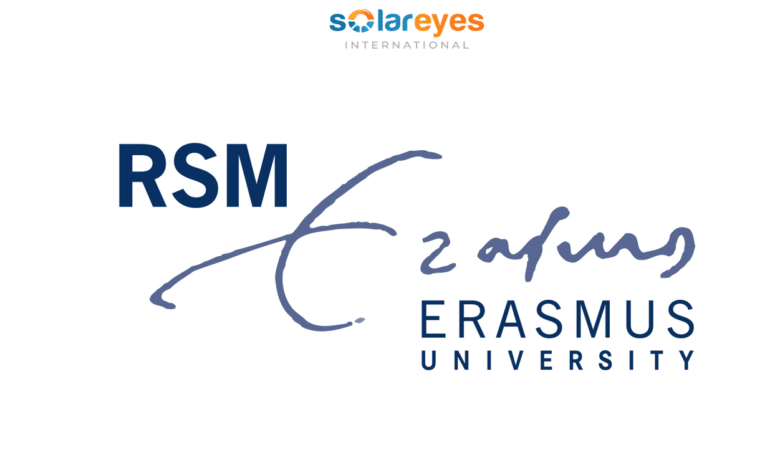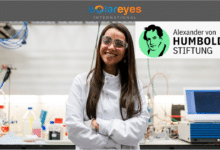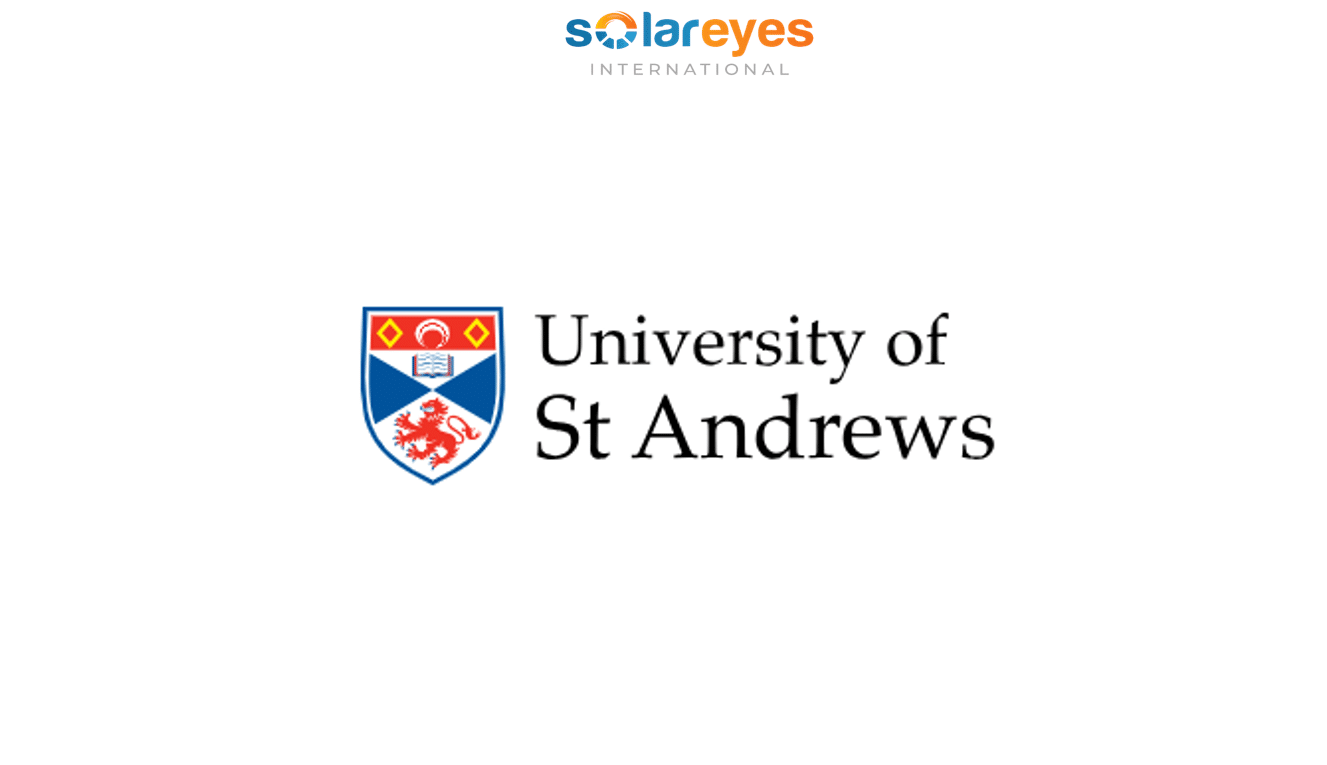PhD Research in Smart and Integrated Energy Transition – Rotterdam School of Management, Erasmus University (RSM), Europe
PhD Opportunity

PhD Research in Smart and Integrated Energy Transition – Rotterdam School of Management, Erasmus University (RSM), Europe
Abstract
A hydrogen-powered future is not just a vision; it’s a necessity for a sustainable and clean energy transition.The Netherlands particularly is well positioned to be the future hydrogen hub of Europe.This is why the Dutch government has made great investments in the R&D of the hydrogen economy. This PhD project is also funded by this program.
The overall project is formed through the ‘Hydrogen Transport, Offshore and Storage’ (HyTROS) consortium, which is a public private collaboration with 11 universities, 2 research institutes, 2 academia of applied sciences (HBO) and 19 industrial partners, of which 4 are co-applicant and 15 are co-funders. The consortium contains all TSO’s and DSO’s in the Netherlands that will transport hydrogen and future storage operators, as well as supply industry for on- and offshore pipeline installation, inspection and maintenance.
Our role in this consortium is to develop a hydgoran market for a promising hydrogen economy. This is to analyze the challenges around upscaling of the hydrogen market, the necessary infrastructure development, and the system integration between the future hydrogen and power grid to enable a stable energy system for the future.
As such, we are seeking highly motivated students interested in this topic, with demonstrated academic ability, those who possess a commitment to interdisciplinary research on significant information technology and management issues, and those who desire to pursue an academic research career in this field. You will be part of the Business Information Management (BIM) section within the Department of Technology & Operations Management at the Rotterdam School of Management, Erasmus University.
Also Check: CARE International is Accepting Applications for Multiple Positions in Different Countries – APPLY
Applicants must have strong quantitative training, with preference given to candidates who have earned an MSc, MPhil or Research Master in economics, computer science, engineering, econometrics, statistics, or a related field. Successful candidates have preferably strong backgrounds in economics, optimization, AI, and proficiency with Python, or other programming languages.
As a Ph.D. student, you will gain the training and experience necessary to conduct independent research through course work in information systems, economics, econometrics, machine learning, optimization, and large-scale data analytics. You will work closely with the advisors to define, develop, and execute your own research. The Ph.D. dissertation will be defined by the student with inputs from the advisors, and thus requires creativity, self-direction, and a passion for scientific inquiry.
Keywords
Energy transition, Hydrogen economy, Electricity-hydrogen integrated markets, Market mechanisms, Energy supply-demand matching, Green information systems, Energy informatics, Energy operations research
Topic
Research Topics
The hydrogen ecosystem cannot scale up without a proper hydrogen value chain and an efficient hydrogen market in the palace. Indeed, in the scale-up process, the supply chain of the hydrogen system co-evolves with its underlying value chain and market design. To plan for this, we need proper models and pre-evaluated and efficient market designs. We, therefore, aim to model the H2 value chain and furthermore, design an efficient market mechanism accordingly.
The market design should be dynamic, incorporating the future evolution of the supply-demand and prices. The market mechanisms should also incentivize unleashing energy flexibility which helps the economic viability of scaling up the hydrogen ecosystem. This, of course, is not possible without accounting for the interplay between the hydrogen and the electricity sectors.
The heterogeneity in the supply-demand and flexibility between the hydrogen and the electricity sectors provides a great deal of flexibility that should not be disregarded. Moreover, the value of flexibility and energy in each of these two sectors could vary and this difference could benefit an integrated market design. We aim to embrace all of these nuances and opportunities in our market designs.
To conduct research, you will be able to take advantage of multiple industries and university collaborations (which is inherent by the nature of this consortium) as well as institutional databases, and software development support to gain access to large-scale data sets and have the opportunity to conduct real-world field experiments.
Organization
The BIM section of the Department of Technology & Operations Management at RSM is recognized worldwide and is multi- and interdisciplinary, publishing their research in top information systems and management journals. This makes the BIM section a lively, creative, and intellectually stimulating place to conduct research. The BIM section has a large, young and highly international faculty. The research-active faculty members have been educated at renowned institutions in Europe, the USA, and Asia. We have a strong research and teaching tradition and an international orientation both to the academic community and the business community.
BIM offers a high-profile MSc Business Information Management, one of Europe’s largest master programmes in Information Systems with 250+ new students each year. The programme delivers in-depth knowledge from theoretical and practical perspectives. Furthermore, a Master of Business Analytics & Management program was launched in 2020.
Rotterdam School of Management, Erasmus University (RSM) is one of Europe’s top 10 business schools. RSM provides ground-breaking research and education furthering excellence in all aspects of management and is based in the international port city of Rotterdam – a vital nexus of business, logistics and trade. RSM’s primary focus is on developing business leaders with international careers who can become a force for positive change by carrying their innovative mindset into a sustainable future. Our first-class range of bachelor, master, MBA, PhD and executive programmes encourage them to become critical, creative, caring and collaborative thinkers and doers.
Please visit our website for more information:
- RSM: www.rsm.nl
- Department of Technology & Operations Management: www.rsm.nl/research/departments/technology-and-operations-management
- MSc Business Information Management: www.rsm.nl/bim
- Erasmus Research Institute and Management: www.erim.eur.nl
Approach
This project is multi-disciplinary (information systems, operations, economics) and uses different research methodologies. We use and develop quantitative models based on operations research, econometrics, and machine learning.
Coursework. Core coursework is designed to build methodological skills, modelling competence, and substantive depth. The Ph.D. students will develop their knowledge and research skills by taking courses during the first and second year. The courses are offered by the Tinbergen Institute (http://www.tinbergen.nl), ERIM (https://www.erim.eur.nl/), and/or other research institutes. It is relevant to economics of information systems and business analytics in information systems, including, but not limited to microeconomics (individual choice, aggregate supply and demand, equilibrium), econometrics (endogenous variables, choice modeling), statistics and probability, Bayesian modelling, machine learning, and deep learning.
Research seminars. We organize weekly BIM research seminars (www.erim.eur.nl/research/events/research-seminars) that bring leading scholars to share their knowledge and insights on cutting-edge research that is emerging in other top schools around the world. Exposure to such network helps you jump-start your careers by providing in-depth view of mainstream research in the field, key methodological concerns, and emerging views among scholars and journal editors.
Research environment. Our interdisciplinary Ph.D. program provides an unparalleled source of training for doing cutting-edge research in Information Systems. In addition to strong technical training in quantitative methods, students will also be equipped with a deep appreciation and understanding of the behavioral mechanisms and processes that influence decision making via interactions with faculty studying topics related to individual decision making in experimental paradigms. Although you are likely to work primarily with field data, you will have access to the Erasmus Behavioral Lab, which provides all the necessary facilities to conduct world-class research on consumer behavior (cubicles, group labs, video-labs, eye tracking, EEG).
Required Profile: PhD Research in Smart and Integrated Energy Transition – Rotterdam School of Management, Erasmus University (RSM), Europe
- The candidates should have an interest in energy systems.
- Preferred background: MSc. in Information Systems, Industrial engineering, Supply Chain Management, Econometrics, Applied Mathematics, Operations Research, Computer Science or Business Analytics;
- Excellent study record; Programming experience;
- International orientation and the capacity to speak and write in English fluently;
- Background in economics, machine learning and optimization is advantageous.
- Commitment and drive to execute excellent PhD Research.
All application documents required by ERIM can be found here: https://www.erim.eur.nl/doctoral-programme/phd-in-management/admissions/application/
Interested candidates are invited to visit the ERIM PhD in Management website (http://www.erim.eur.nl/doctoral-programme/) for information about application procedures and criteria. The application deadline is 15 January, 2024. We encourage applicants to submit as early as possible as we will evaluate applications as they come in.
If you have any questions about the formal admission requirements, please contact the ERIM doctoral office: [email protected] or contact Dr. Yashar Ghiassi-Farrokhfal ([email protected]).
Expected output
Scholar publications. The project aims to publish the results of the research in the top journals in information systems and operations management.You will develop research papers that can be published in top-tier information systems and management journals, such as Management Science, MIS Quarterly, and Information Systems Research. BIM faculty at RSM has a strong publication record in these journals. The final results of the Ph.D. are also published in a Ph.D. dissertation. Most BIM Ph.D. students will be able to publish multiple papers in these top journals.
Placement record. In the past five years, our graduates have accepted faculty positions at top business schools all around the world, including MIT, Northwestern University, George Washington University, Copenhagen Business School, IE Business School, University of Amsterdam, and VU Amsterdam.
Cooperation
We closely collaborate with world-class energy researchers from top schools such as London Business School, U of Cambridge, U of Texas-Dallas, Hong-Kong business school, KIT, KTH, etc. We are also part of the AI energy convergence which is a multi-disciplinary energy research teams with all expertise from Erasmus U and TU-Delft. Apart from that, in the project, we collaborate with multiple industry partners and knowledge institutes in the consortium.
We expect that there will be extensive collaborations with Utrecht University and TU Delft both of which being in the same project. Furthermore, to strengthen your international profile, we strongly encourage our Ph.D. students to go abroad for a research visit during their third or fourth year at one of the top universities for 3 to 6 months. Past destinations include MIT, London Business School, University of Maryland, University of Minnesota, Carnegie Mellon University, and University of California, Berkeley.
Employment conditions
ERIM offers fully-funded and salaried PhD positions, which means that accepted PhD candidates become employees (promovendi) of Erasmus University Rotterdam. Salary and benefits are in accordance with the Collective Labour Agreement for Dutch Universities (CAO).
Erasmus University Rotterdam aspires to be an equitable and inclusive community. We nurture an open culture, where everyone is supported to fulfil their full potential. We see inclusivity of talent as the basis of our successes, and the diversity of perspectives and people as a highly valued outcome. EUR provides equal opportunities to all employees and applicants regardless of gender identity or expression, sexual orientation, religion, ethnicity, age, neurodiversity, functional impairment, citizenship, or any other aspect which makes them unique. We look forward to welcoming you to our community.
Contact information
For questions regarding the PhD application and selection procedure, please check the Admissions or send us an e-mail via [email protected].





